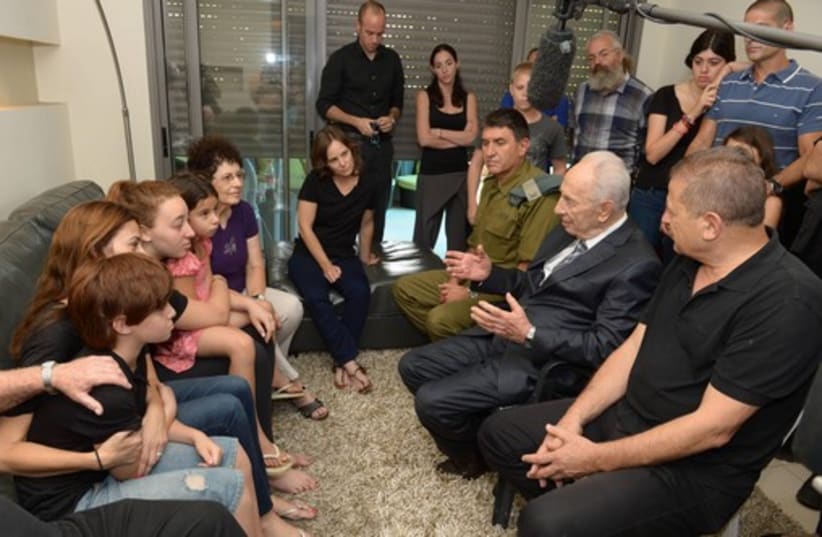The idea that the Jewish people would once again take possession of their ancestral homeland was worth every risk.
The emotional switch from grief and sadness to exhilarating joy is part of the Jewish psyche. It is recorded in the Bible and in the Book of Esther, in the rebirth of the Jewish people after the Holocaust, and even during the times we live in now.
Remembrance Day is marked on the 4th day of the Hebrew month of Iyar, one day prior to Independence Day, which is on Iyar 5.
In recent years, Remembrance Day has been broadened to include the victims of terrorism on the premise that, like soldiers, they too paid the supreme sacrifice in the conflict between Israel and her neighbors.
The custom of commemorating the fallen began in 1951, three years after the establishment of the state, when many who gave their lives for Israel’s independence were Holocaust survivors proud to bear arms for the Jewish national renaissance.
The observance of Remembrance Day was enacted into law in 1963.
Since the reunification of Jerusalem in 1967, the ceremony has begun in the evening with a service at the Western Wall attended by representatives of the IDF, members of bereaved families and the president of the state. A two-minute siren is sounded at 8 p.m., and the whole country stands in tribute to the fallen.
On the following day, the siren is repeated at 11 a.m. Traffic stops. Drivers alight from their cars. Drivers and passengers stand up in buses, and people stop in their tracks in the street. Tourists and new immigrants experiencing this for the first time are emotionally moved, but also disturbed by those who ignore the siren. The national memorial ceremony is held at Jerusalem’s Mount Herzl military cemetery. Other ceremonies take place in military cemeteries across the country.
Public transport for those going to military cemeteries is free of charge.
Remembrance Day is a statutory holiday; few bars, restaurants or supermarkets are open Tuesday night. This is not only a mark of respect, but also a solemn period of mourning, as almost every family has lost someone in a war, a skirmish, an accident or a terrorist attack.
Flags throughout the country are lowered to half-mast. Restaurants reopen on Wednesday – not only in anticipation of the Independence Day festivities which begin at sunset, but also because some people have traveled far to visit the grave of a fallen soldier friend or family member, and may require refreshments.
